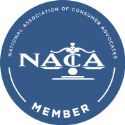Consequences of Defaulting on Student Loans
It’s a tough time to be a college graduate in the United States. Approximately 69% of graduates are finding themselves with student loans debts. The current average owed is $30,000.
Life is unpredictable. One day it's all sunshine and rainbows; You might have a great job, living the dream of every graduate in the working force. Without warning, sometimes life's forecast turns dark and stormy. So you might wonder what happens if you find yourself unable to make your payments? At first you will just be hit with late fees, derogratory credit notations, and incessant phone calls from collectors. However, if you continue to miss your payments for long enough, you may find your loans to be in default status. Most loans are defaulted sometime between 180 - 270 days since the last minimum payment. Upon entering default status, the entire balance is "accelerated" and the unpaid balance is due in full.
The consequences of default differ depending on whether the loan is private or federal.
Federal Student Loan Default
Federal student loans come with many of benefits. They have deferments, forebearances, flexible payment plans, and options for loan forgiveness. However once an federal loan enters default status, these benefits are no longer available. You lose eligibility for deferments, flexible repayment plans, and lose elegibility to qualify for additional student aid. Furthermore, the debtor may be subject to wage garnishment (up to 15%) and treasury offset. The government can issue an order to the IRS to withhold your tax refunds and use that cash as payment on your defaulted loan.
One of the bigger consequences of defaulting on a federal student loan is that the lender has the power to charge huge collection fees, sometimes in the range of 16%-25%. Over a period of a few years, these collection fees can add up to be a very substantial portion of the total outstanding balance.
In addition to these reprecussions of default, any late payments and default/charge-off notations may remain on the credit report for up to 7 years. Completing a loan rehabilitation may remedy some of the adverse credit reporting, and may result in an increase in credit score.
Private Student Loan Default
Much like federal loans, private loan lenders will demand immediate payment on the full balance of a defaulted loan. Similarly, they will also have the power to garnish you wages, however, this would only be by court order. In other words, in order for a private lender to garnish wages or freeze bank accounts, they would first have to bring a lawsuit and obtain a judgment against the debtor. A debt defense attorney can be very helpful in these types of situations.
Oftentimes, private student loan lenders will require a co-signer in order to provide funds to an applicant with questionable credit. Generally, the lender has the same remedies against the co-signer as they do the primary obligor, which includes bringing a lawsuit. Sometimes the lender is actually more interested in pursuing a co-borrower then the primary borrower, because they know the co-borrower has more substantial income and/or assets that could be subject to debt collection.
Private loan lenders will also report the defaulted loan to the credit bureaus, which can wreak havoc on credit scores.
Need Assistance With A Student Loan?
Our lawyers are experienced in the various default resolution methods. We can help you navigate your options and find a resolution that suits you best.











